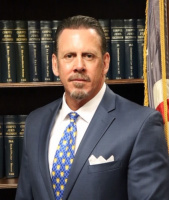Ceresco Felony Lawyer, Nebraska
Timothy P. Sullivan
✓ VERIFIEDCriminal, DUI-DWI, Misdemeanor, Felony, Visa
Experienced, Effective, Aggressive Representation
Timothy Sullivan is a lawyer based in Lincoln, NE who can assist with criminal defense, family law, immigration, and more.
Thomas Jay Olsen
Criminal, Felony, DUI-DWI, Domestic Violence & Neglect, Firearms
Attorney Tom Olsen handles criminal defense cases in Omaha, Douglas County and throughout Nebraska. With over 30 years experience, Tom is generally co... (more)
Nicholas Matthew Froeschl
Dispute Resolution, Lawsuit & Dispute, Family Law, Felony
Status: In Good Standing
Jim Kingsley McGough
Criminal, Felony, Misdemeanor, RICO Act
Status: In Good Standing Licensed: 28 Years
FREE CONSULTATION
CONTACT



